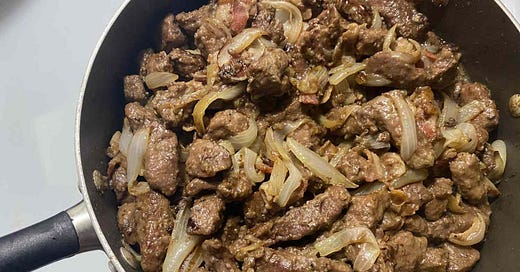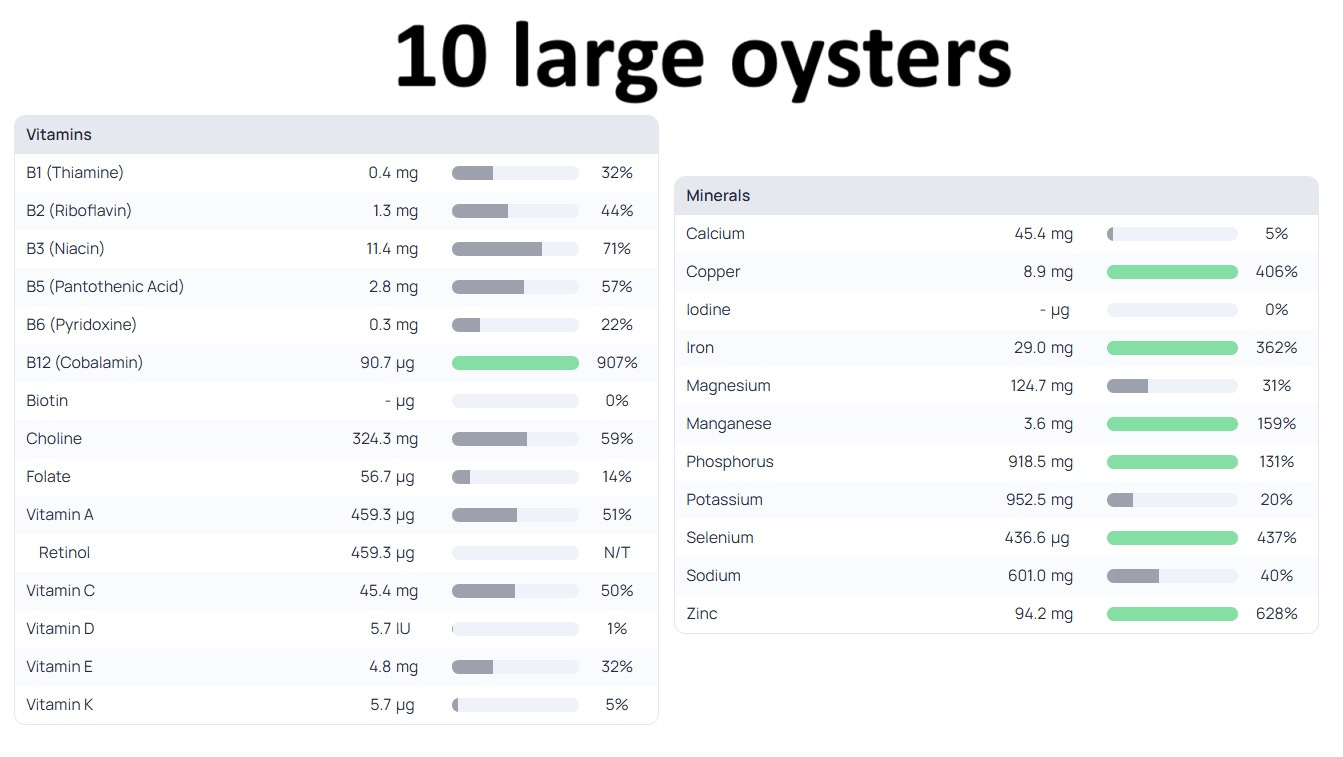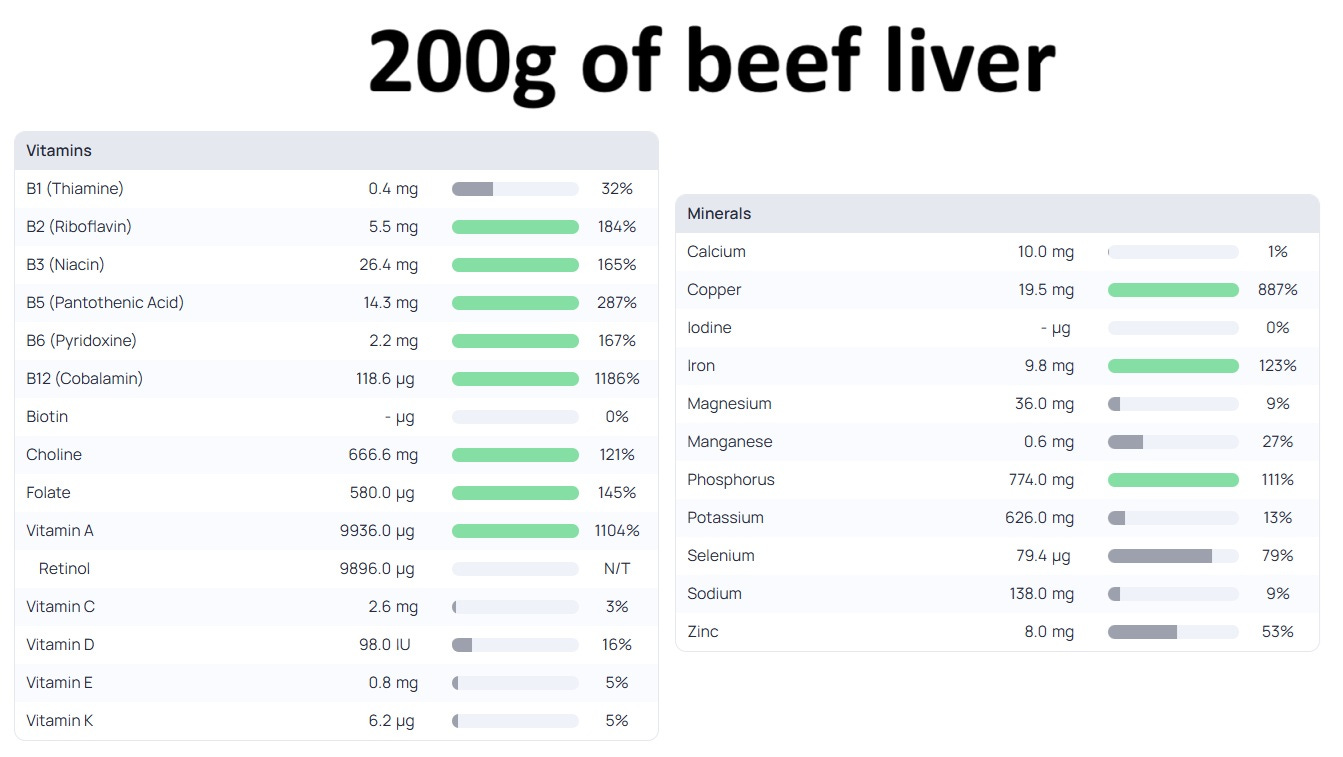If I had to choose between oysters or liver, I’d pick oysters. But ideally, consuming both is best.
Here’s why.
Nutritional profile
Oysters
Oysters are a great source of zinc, selenium, iodine, iron, copper, manganese and vitamin B12. It’s also a decent source of vitamin B2, B3 and B5.
It’s also a good source of adenosine and AMP (a nucleotide), trace minerals and beneficial peptides.
Dietary AMP (the nucleotide found in oyster) increased food intake but reduced fat mass in mice by boosting brown fat thermogenesis (↑ UCP-1, ↑ body temperature) and promoting white fat lipolysis (↓ lipid droplet size) (R). This suggests AMP enhances energy expenditure and oxygen consumption.
Liver
Liver is by far the best source of vitamins. It’s an excellent source of vitamin B2, B3, B5, B6, choline, biotin, folate, B12, vitamin A, vitamin K2, copper, iron and selenium.
It’s also a great source of nucleotides and beneficial peptides.
Here’s what I discuss in the article:
Glucose & Lactate Deep Dive
Iron Panel Transformation
Liver Enzymes & Detox Support
Lipid Panel Breakdown
Zinc vs Copper Balance
Why oysters are metabolically "cooler" than liver





